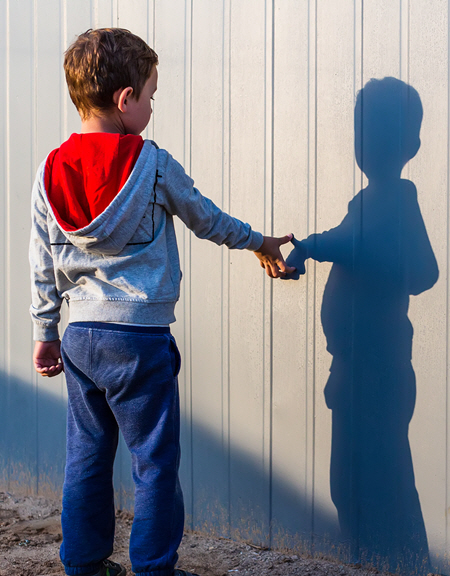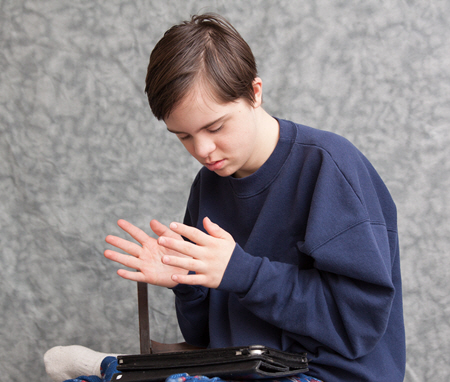 Normal childhood development follows certain patterns.
Normal childhood development follows certain patterns.
Most young children (below age six) are quite social… they want to interact with others. This is how they grow.
Seeing children playing ‘peek-a-boo’ as infants/toddlers or ‘hide-and-seek’ for 3- to 6-year-olds is normal.
The child may not answer to his name being called or spend a lot of time ‘in her own world.’
There may be other concerning behaviors such as repetitive routines or having no interest in others. Some may be sensitive to sight, sound, touch, smell, taste, and emotions.
If your child is not interested in these ‘standard’ reactions, there is cause for concern.
What is ASD?
Clinically defined, Autism is a sensory integration disorder, which displays a broad range of symptoms and degree of severity.
Clients are diagnosed on a spectrum of severity regarding social isolation and/or withdrawal.
 Treatment helps your child function with ASD.
Treatment helps your child function with ASD.
The most common symptoms include anxiety and difficulty communicating.
This type of neuro-diverse client is best supported by specialists who individualize care to clients’ needs and goals.
Early intervention with family involvement is essential.
Many symptoms of ASD appear early in child development, and proper diagnosis and treatment need to occur during the child’s preschool years.
The family is also an important part of the process. Usually parents and siblings have questions that end with, “Are we doing this right?”
With our help, parents can design an in-home plan to improve communication, behavior, and social skills. Untreated, ASD only creates more anxiety and depression.
The challenge with clients on the spectrum is they often learn and cope in unique ways.
 We can offer guidance and help.
We can offer guidance and help.
The most important things are trust, helping clients move THROUGH difficulties to minimize perseveration, and reducing anxiety to improve communication and critical thinking.
Let’s discuss your child’s situation today.
Let’s start working together to help change your child’s life for the better. Your child “difability” will be discussed for what they CAN do, from a strengths-based perspective.
List your questions for us, so we can offer our best tools to support your child and whole family.
Please complete the contact form below or call (959)210-6800.

